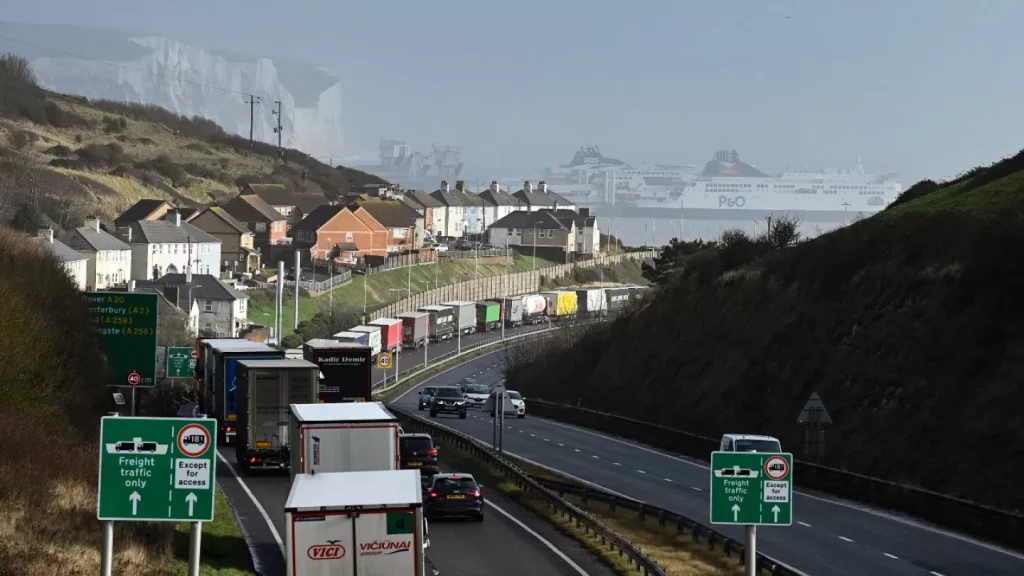Introduction: How Brexit Has Reshaped Trade Relations Between the U.K., the EU, and the Rest of the World
Brexit, the United Kingdom’s decision to leave the European Union, has fundamentally reshaped the global trade landscape. Since the referendum vote in 2016 and the formal withdrawal in 2020, the U.K. has been navigating a new economic reality—one without the benefits of seamless trade within the EU’s single market.
Brexit marked a major departure not only for the U.K. but also for the EU, altering trade agreements, customs procedures, and the movement of goods and people. While the U.K. and EU reached a trade deal at the end of 2020 to avoid a “no-deal” Brexit scenario, many challenges remain in terms of adapting to new barriers and regulatory changes.
At the heart of the post-Brexit trade environment is the question of how the U.K. will reassert its position in the global trade system, particularly with regard to its relations with Europe and its future dealings with the rest of the world. Can the U.K. maintain its role as a global trade hub, or will the shifting dynamics of international relations push it into a more isolated, less prosperous future?
In this article, we will explore how Brexit has reshaped trade relations between the U.K., the EU, and the rest of the world, the opportunities and challenges that have arisen, and the strategic direction the U.K. might take to ensure its economic future in a post-Brexit world.
Impact on U.K.-EU Trade: Challenges and New Opportunities Arising from New Trade Barriers, Customs Procedures, and Tariffs
One of the most immediate and visible impacts of Brexit on trade relations is the reintroduction of barriers between the U.K. and the EU, which had previously enjoyed frictionless trade as part of the EU’s Single Market. The end of the U.K.’s membership in the Single Market and Customs Union has created new customs procedures, regulatory barriers, and tariffs, disrupting longstanding trade relationships between the two regions.
Customs and Border Delays
The most visible effect of Brexit has been the re-imposition of customs checks on goods moving between the U.K. and the EU. Goods now face delays at borders due to the need for customs declarations and checks on both sides. The complexity of new procedures has created additional costs for businesses, particularly small- and medium-sized enterprises (SMEs) that rely on low-cost and efficient cross-border trade.
For instance, UK-based businesses that used to export goods to EU countries without customs checks now face tariffs and paperwork requirements that can lead to delays. In some sectors like food and automotive, these delays are having a disproportionate impact on supply chains.
Trade Tariffs and Rules of Origin
One of the most significant aspects of the new relationship between the U.K. and the EU is the imposition of tariffs on certain goods. Under the new Trade and Cooperation Agreement (TCA), the U.K. and the EU have agreed to maintain zero-tariff trade on most goods, but there are exceptions. For example, the new rules of origin requirements mean that goods must meet certain criteria in terms of where they are made in order to be eligible for tariff-free trade. These regulations have added complexity to cross-border trade, particularly in industries with intricate supply chains, like automotive manufacturing and electronics.
For businesses that source components from multiple countries, the new rules of origin could increase costs and administrative burdens. For example, a British-made car that includes components sourced from EU countries will face tariffs unless it meets the strict criteria of British manufacturing content. This change has had a ripple effect in the automotive sector, which has long relied on seamless supply chains between the U.K. and the EU.
The Impact on Northern Ireland
One of the most complex issues stemming from Brexit is the situation in Northern Ireland. As part of the Northern Ireland Protocol, the region remains effectively within the EU’s single market for goods, but this creates a de facto customs border in the Irish Sea. Goods entering Northern Ireland from the rest of the U.K. are now subject to customs checks and additional paperwork, which has caused friction and delays.
The ongoing tensions over the Northern Ireland Protocol are affecting the stability of the U.K.-EU trade relationship, with some U.K. businesses complaining about the added costs and complexities of doing business with Northern Ireland. While the Protocol is designed to protect the Good Friday Agreement and avoid a hard border between Northern Ireland and the Republic of Ireland, it has created a new set of challenges for U.K. exporters.
New Opportunities in U.K.-EU Trade
Despite the challenges, there are also new opportunities in the post-Brexit trade relationship. The U.K. can now independently negotiate trade deals with countries outside the EU, including the U.S., Australia, and nations in Asia. These new deals could provide the U.K. with more flexibility and a chance to strike tailored agreements that meet its specific economic needs.
Moreover, the U.K. has greater freedom to set its own regulatory standards, which could encourage innovation and create new opportunities for businesses to adapt to changing global trends.

The Role of Global Trade Agreements: How the U.K. Is Seeking New Trade Deals with Countries Outside the EU, Including the U.S. and Asia-Pacific
In a post-Brexit world, the U.K. is no longer tied to the EU’s common trade policy, giving it the opportunity to negotiate its own bilateral trade agreements. These new deals are key to the U.K.’s strategy to secure its position as a global trading power. By pursuing free trade agreements (FTAs) with countries outside the EU, the U.K. is hoping to offset some of the losses from its departure from the European Single Market.
U.K.-U.S. Trade Relations
The U.K. has long been a close ally of the U.S., and the two countries share deep economic and cultural ties. Following Brexit, the U.K. has placed a high priority on securing a trade deal with the U.S., one of the world’s largest and most influential economies. While discussions for a comprehensive U.K.-U.S. trade agreement have been slow, there is significant potential for increased collaboration, particularly in sectors like technology, finance, and pharmaceuticals.
An FTA with the U.S. could eliminate tariffs and other trade barriers, benefiting U.K. businesses by making it easier to export goods and services. It could also provide opportunities in areas like digital trade, intellectual property rights, and financial services, all of which are important components of the U.K.’s economy.
Trade Deals with Asia-Pacific Nations
Beyond the U.S., the U.K. is keen on establishing stronger trade ties with countries in the Asia-Pacific region. The U.K. has already begun negotiations with nations like Japan, South Korea, and Australia to secure post-Brexit trade deals. In 2021, the U.K. officially became a member of the Comprehensive and Progressive Agreement for Trans-Pacific Partnership (CPTPP), a trade bloc that includes 11 countries across the Asia-Pacific region.
The CPTPP deal, which covers about 13.4% of the global economy, is an important part of the U.K.’s strategy to diversify its trade relationships. This deal could open up new markets for British goods and services, particularly in areas like agriculture, technology, and manufacturing.
Emerging Markets and Trade Diversification
In addition to the U.S. and Asia, the U.K. is also focusing on emerging markets in Africa, the Middle East, and Latin America. By building new trade relationships with these regions, the U.K. hopes to diversify its trade base and reduce its reliance on Europe. As the global economic center of gravity shifts towards Asia and the developing world, these new markets could become increasingly important for British businesses.
Economic Shifts: The Economic Impact on Key Industries such as Finance, Automotive, and Agriculture
Brexit has had a significant economic impact on several key industries in the U.K. The loss of frictionless access to the EU market has created both challenges and opportunities for industries that rely heavily on cross-border trade.
Finance: London’s Role as a Global Financial Hub
One of the most discussed aspects of Brexit is the impact on the financial services sector. London has long been regarded as one of the world’s leading financial hubs, but its departure from the EU has led to changes in the way financial services are delivered to European clients. As a result, some financial firms have relocated operations to cities like Dublin, Frankfurt, and Amsterdam, while others have sought to establish subsidiaries within the EU to maintain access to the single market.
While London’s dominance in financial services remains strong, there are concerns about how the U.K. will maintain its competitive edge in the long term. The loss of passporting rights, which allowed financial firms to offer services across the EU without additional licenses, has created some barriers for U.K.-based firms. However, the U.K. government is actively working to develop new regulatory frameworks that could keep London at the forefront of global finance.
Automotive: Supply Chain Disruptions and New Trade Barriers
The automotive industry has been one of the hardest-hit sectors by Brexit. Car manufacturers, such as Nissan, Jaguar Land Rover, and BMW, rely on just-in-time supply chains that span the U.K. and the EU. Brexit has introduced new customs checks, tariffs, and administrative hurdles, all of which have increased costs and disrupted production timelines.
Despite these challenges, the U.K. government has sought to support the industry by offering incentives
for manufacturers to invest in electric vehicles (EVs) and future-proof production. Trade deals with countries outside the EU, particularly in Asia, may also help to mitigate the impact of Brexit on the automotive sector.
Agriculture: The Challenge of Tariffs and Standards
The agricultural sector has faced significant disruptions due to Brexit, particularly in terms of new tariffs, labor shortages, and the changing regulatory environment. The introduction of tariffs on certain agricultural goods, such as meat and dairy, has made it harder for U.K. farmers to access the EU market. Moreover, the new immigration rules have led to shortages of seasonal labor, which has affected the ability of farmers to harvest crops on time.
However, the U.K. government has sought to mitigate these challenges by negotiating new trade deals with non-EU countries. These deals may open up new markets for British agricultural products, but the overall impact on the sector remains uncertain.
Outlook: Can the U.K. Thrive Outside the EU, or Will Its Trade Relationships with Europe Continue to Struggle?
The future of the U.K.’s trade relationships post-Brexit is a topic of significant debate. While the country has the potential to thrive outside the EU by pursuing new trade deals and expanding its global reach, the challenges of navigating a post-Brexit world cannot be underestimated.
In the short term, the U.K. will likely continue to face friction in its relationship with the EU, particularly in industries like finance, automotive, and agriculture. The introduction of new tariffs, customs procedures, and regulatory barriers will keep businesses on edge as they adapt to the changing environment.
However, in the long term, the U.K. has opportunities to diversify its trade base, establish new relationships with emerging markets, and develop more flexible regulatory frameworks that could encourage innovation and economic growth. Whether the U.K. can maintain its position as a global trade power will depend largely on how successfully it manages these challenges and adapts to the new world order.





























